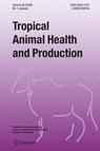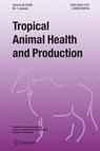
Ilse Köhler-Rollefson, H. S. Rathore and E. Mathias. Tropical Animal Health and Production. 22 Nov 2008.
Abstract
In South Asia, and throughout the developing world, the predominant official approach to livestock development has been improvement of production by means of upgrading local breeds via cross-breeding with exotic animals. This strategy has led to the replacement and dilution of locally adapted breeds with non-native ones. This has resulted in an alarming loss that has been estimated by the Food and Agriculture Organization of the United Nations to amount to one breed every two weeks. Based on selected case studies this paper argues that development strategies using locally adapted breeds and species are much more likely to benefit livestock keepers whilst also maintaining domestic animal diversity and bearing a smaller ecological footprint. It also analyses the rationale for “Livestock Keepers’ Rights”, a principle that grew out of the struggle of traditional livestock keepers to retain control over their production resources, such as grazing areas and breeding stock, in the face of unfavourable policy environments.
Draft version (93 kb)
Local breeds, livelihoods and livestock keepers’ rights in South Asia
In South Asia, and throughout the developing world, the predominant official approach to livestock development has been improvement of production by means of upgrading local breeds via cross-breeding with exotic animals. This strategy has led to the replacement and dilution of locally adapted breeds with non-native ones. This has resulted in an alarming loss that has been estimated by the Food and Agriculture Organization of the United Nations to amount to one breed every two weeks.
Based on selected case studies this paper argues that development strategies using locally adapted breeds and species are much more likely to benefit livestock keepers whilst also maintaining domestic animal diversity and bearing a smaller ecological footprint.
It also analyses the rationale for “Livestock Keepers’ Rights”, a principle that grew out of the struggle of traditional livestock keepers to retain control over their production resources, such as grazing areas and breeding stock, in the face of unfavourable policy environments.

Download document
